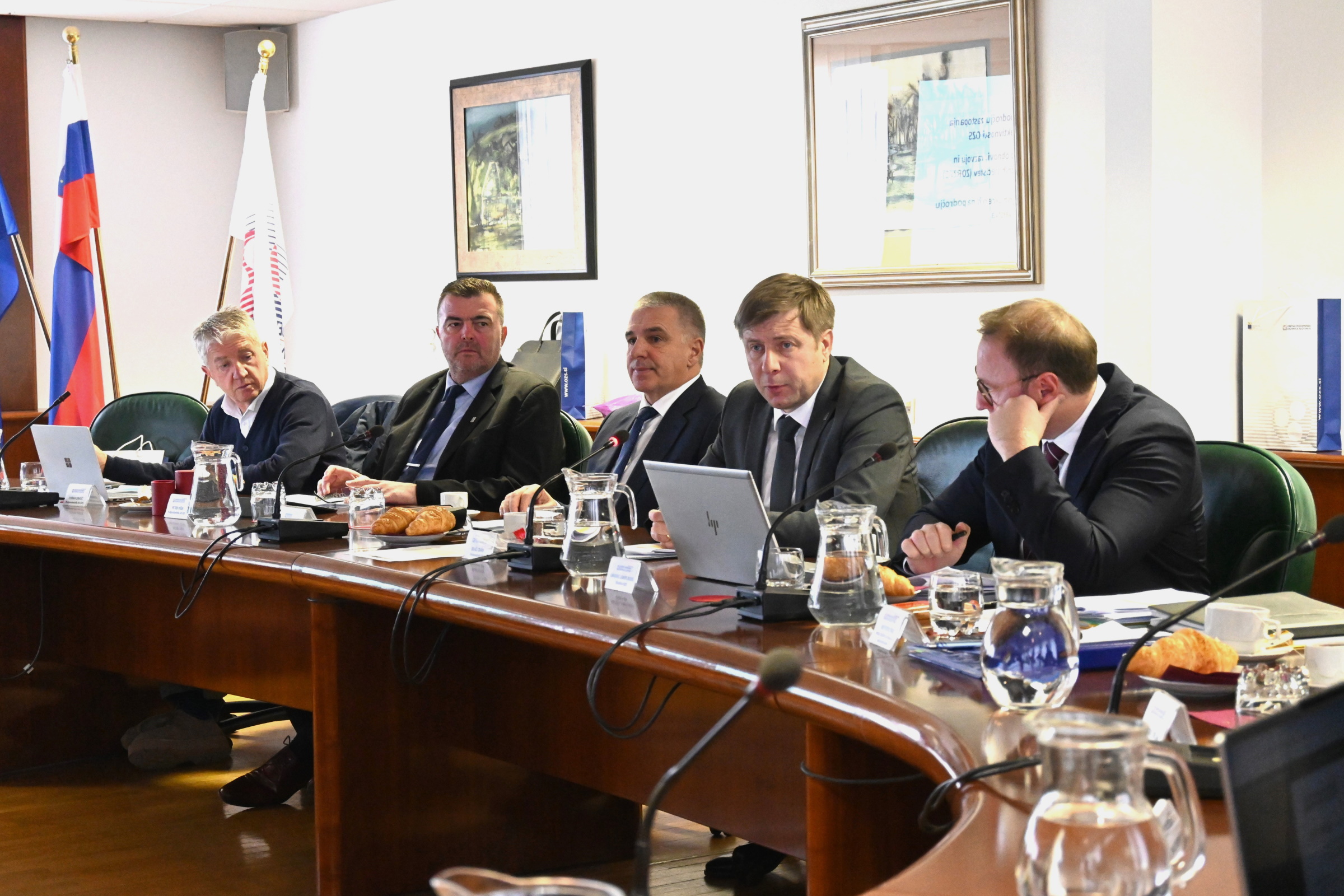By: C. R.
Additional burdens on the economy, brought about by laws on reconstruction and an intervention law in healthcare, are completely unacceptable. We have had enough of new and increasing burdens! These were the key messages from craftsmen and entrepreneurs at today’s and simultaneous last session of the Administrative Board of the Chamber of Craft and Small Business of Slovenia this year.
Blaž Cvar, President of the Chamber, highlighted the efforts of the chamber regarding the law on urgent measures in healthcare. “During the previous government, the number of days of sick leave, which was the employer’s responsibility, was reduced to 20 days. Now the government plans to increase it back to 30 days. Although the ministry considered our remarks regarding the chaining of sick leave and the regulation of relapse, it is not enough compared to the damage the law brings to the economy. The extension of sick leave to 30 days at the expense of the employer brings almost €80 million in additional burdens,” said Cvar, emphasising that many other European countries have 20 or fewer days of sick leave borne by employers.
Cvar also mentioned the possibility of reviving social dialogue. “Our stance remains that the government should first demonstrate trust and give us an assurance that there will be no new burdens, and then we will return to the Economic and Social Council,” Cvar emphasised.
The session also discussed the reconstruction law adopted last week. Danijel Lamperger, Director of the Chamber, explained, “We opposed the increase in the corporate income tax, which is supposedly temporary. However, in terms of this temporary nature, we have already seen how it works. We also opposed taxing banks. We believe that this is not the right way to collect funds, to choose a category and then tax it. Next time, others could be next.”
Marko Lotrič, President of the Trade Union, announced a veto on the intervention law in healthcare: “Our veto will go in the direction of extending sick leave to 30 days. We also did not achieve anything regarding the regressive claim. The health insurance fund needs funds due to the abolition of supplementary insurance, and the remaining amount will be received by the insurance company due to lower payments of sickness benefits. This is about €80 million that will be collected from the economy again. The economy will once again cover the thoughtless mistake from the restructuring of health insurance.”
Bogdan Oblak, President of the Craftsmen’s, and Entrepreneurs’ Association of Logatec, stated that limiting sick pay to 2.5 times the average gross salary is a theft of acquired rights. “An individual with a high salary has been contributing to the health fund for many years, and illnesses cannot be predicted in advance. These rights from sick pay therefore belong to him,” criticised Oblak, adding that employers are striving for higher net salaries for employees, but the state must relieve the costs of wages.
Cvar also emphasised that if someone pays high contribution rates for health insurance, they cannot simply take away these rights when they are sick. “This is a bad message to those who strive, study, and are successful. Then they are not entitled to the appropriate sick pay, even though they have been paying high contributions for years,” Cvar added.
Andrej Papež, a member of the Administrative Board, expressed disappointment with the government during the session. “When will we tell the government that it is enough? This cannot go on. We can no longer motivate employees, nor can we motivate ourselves. The government shows no respect for the economy,” criticized Papež.
